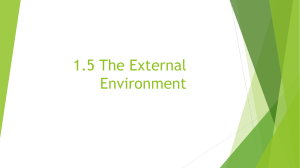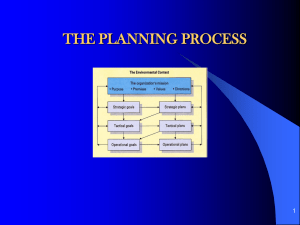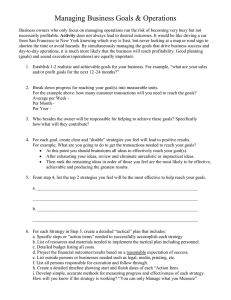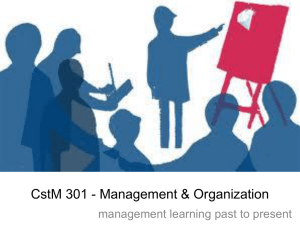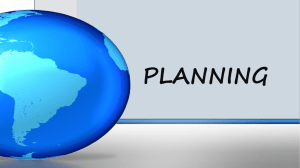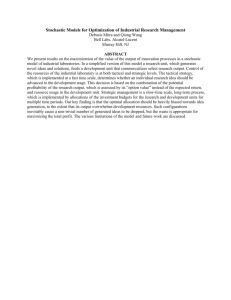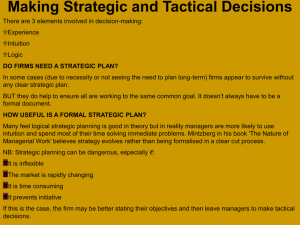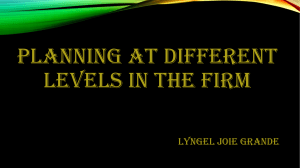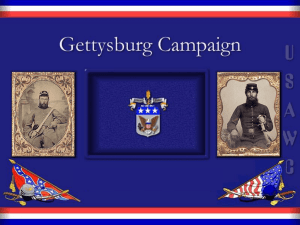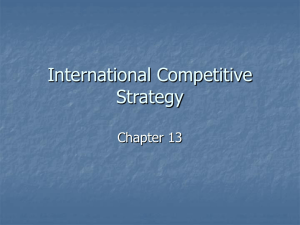Study Guide Test 1
advertisement
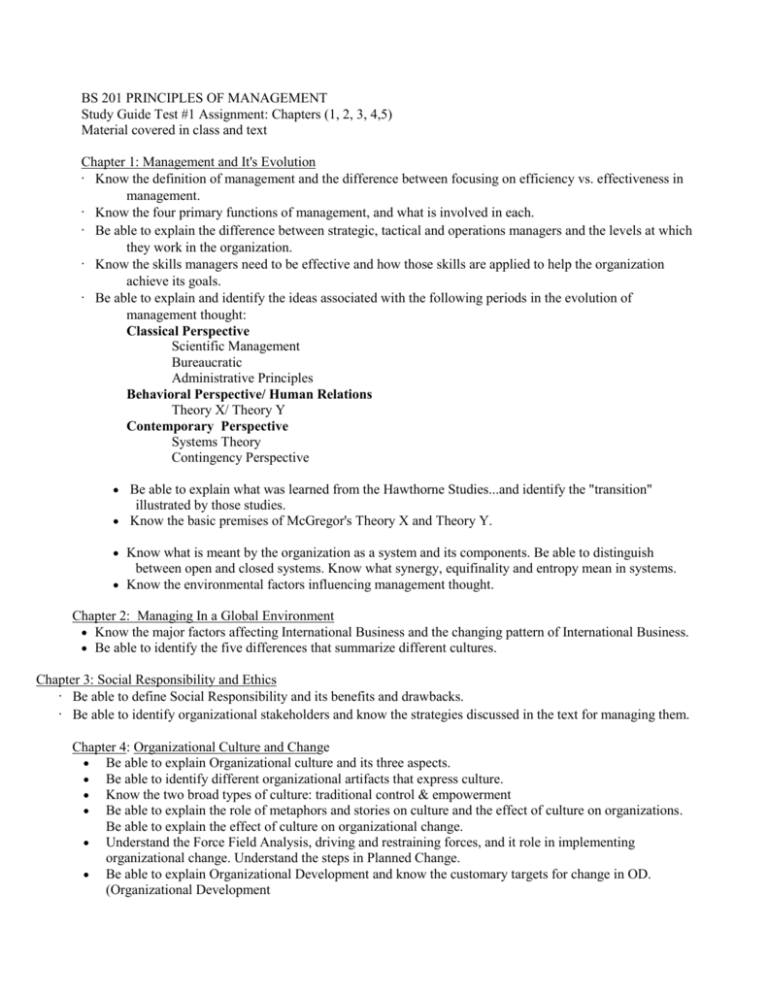
BS 201 PRINCIPLES OF MANAGEMENT Study Guide Test #1 Assignment: Chapters (1, 2, 3, 4,5) Material covered in class and text Chapter 1: Management and It's Evolution · Know the definition of management and the difference between focusing on efficiency vs. effectiveness in management. · Know the four primary functions of management, and what is involved in each. · Be able to explain the difference between strategic, tactical and operations managers and the levels at which they work in the organization. · Know the skills managers need to be effective and how those skills are applied to help the organization achieve its goals. · Be able to explain and identify the ideas associated with the following periods in the evolution of management thought: Classical Perspective Scientific Management Bureaucratic Administrative Principles Behavioral Perspective/ Human Relations Theory X/ Theory Y Contemporary Perspective Systems Theory Contingency Perspective Be able to explain what was learned from the Hawthorne Studies...and identify the "transition" illustrated by those studies. Know the basic premises of McGregor's Theory X and Theory Y. Know what is meant by the organization as a system and its components. Be able to distinguish between open and closed systems. Know what synergy, equifinality and entropy mean in systems. Know the environmental factors influencing management thought. Chapter 2: Managing In a Global Environment Know the major factors affecting International Business and the changing pattern of International Business. Be able to identify the five differences that summarize different cultures. Chapter 3: Social Responsibility and Ethics · Be able to define Social Responsibility and its benefits and drawbacks. · Be able to identify organizational stakeholders and know the strategies discussed in the text for managing them. Chapter 4: Organizational Culture and Change Be able to explain Organizational culture and its three aspects. Be able to identify different organizational artifacts that express culture. Know the two broad types of culture: traditional control & empowerment Be able to explain the role of metaphors and stories on culture and the effect of culture on organizations. Be able to explain the effect of culture on organizational change. Understand the Force Field Analysis, driving and restraining forces, and it role in implementing organizational change. Understand the steps in Planned Change. Be able to explain Organizational Development and know the customary targets for change in OD. (Organizational Development Chapter 5: Managing the Planning Process Know the definitions of planning, objectives, Strategic, Tactical and operations plans, standing plans, single-use plans, policies and rules. Know the difference between Formal and Opportunistic Planning, and the benefits of Planning. Know the types of plans created at the three levels of the organization, the parts of the organization covered by each, the time frames and primary concerns addressed by each.
